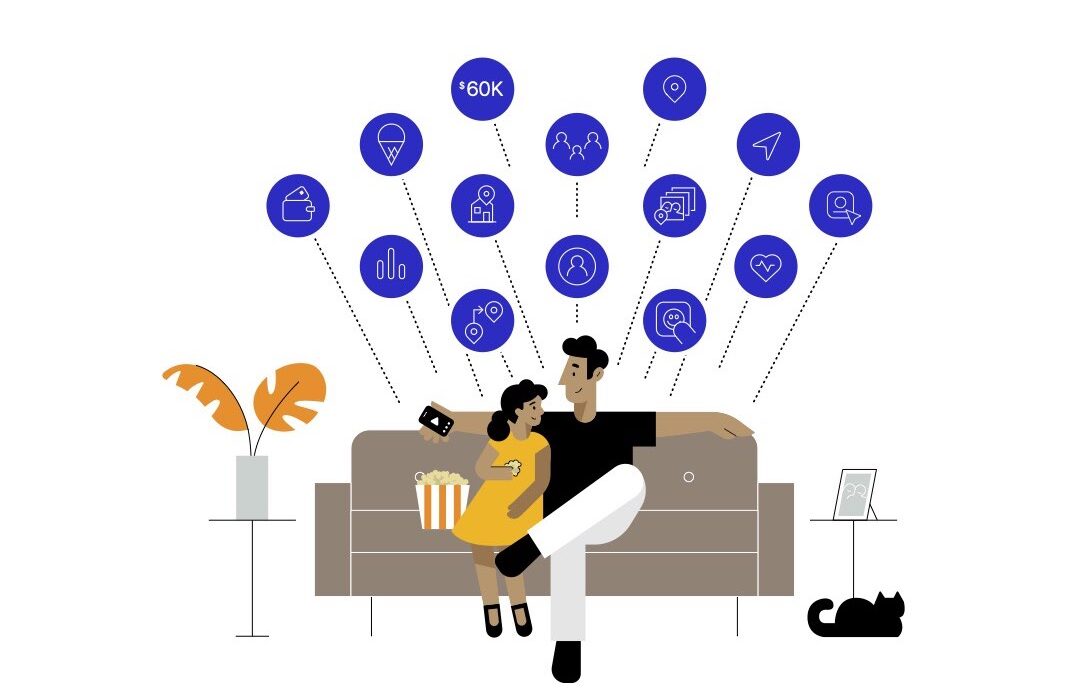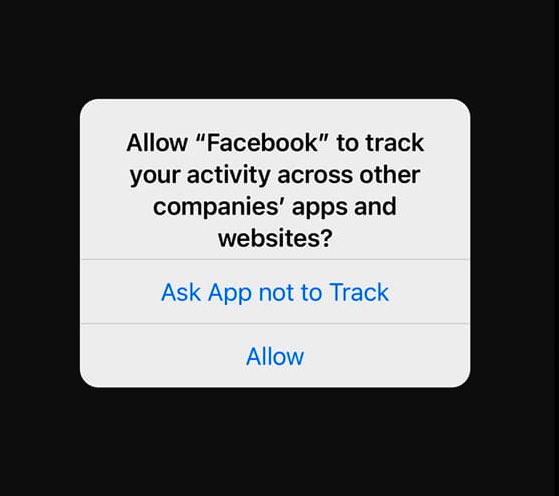
Above: An illustration from Apple’s A Day in the Life of your Data document. Image courtesy Apple.
BitDepth#1287 for February 04, 2021
The contretemps between Facebook and Apple over the last three months hit boiling point in December when Apple dropped version 14.3 of its iOS operating system.
Built into that release are far more explicit controls and warnings than device users usually see about how their data is tracked by companies on the internet.
Apple’s privacy drive is not new. It’s been a cornerstone of their software development efforts for years now, but this is the first time it’s going to reach deep into the systems that control programmatic advertising, the ads that pop up in your browser or social media that seem to mysteriously offer products you were thinking about.
You weren’t thinking about them, of course, you were searching for them or viewing similar products.
That user information gets harvested and repurposed at computing speed to deliver targeted advertising to meet your immediate interests.
At issue is the handling of an anonymised token, the Identifier for Advertisers (IDFA) that’s used for cross-site tracking, that allows information about users to be tracked, aggregated and targeted online.
Apple has created a privacy page that explains the issue from their perspective along with a cheerful PDF, A day in the life of your data, that explains how the IDFA works.
The Apple way isn’t always the best way, and nobody should be operating on the assumption that the company is deeply worried about its users’ privacy.
In August, Apple went to war with Epic Games after the company tried to get out of paying the App Store 30 percent fee by putting its own payment system into the extremely popular Fortnite.
Apple booted the game out of its store system for breaking its rule on revenue collection and has been battling Epic in court ever since. That battle hasn’t been thrilling for its customers.
While the company appears to be on the side of the angels in standing up to Facebook and Google by making tracking tokens a more visible user choice, it’s also more shiny detailing on the company’s already gleaming product lineup.
Our products look good, and we care about your online privacy is, in 2021, a potentially quite profitable market position for a company to take.
Facebook framed their objection as support for the small businesses who use its advertising product. The company is said to be planning a legal response.
For all Facebook’s trumpeting of privacy concerns, it still takes multiple menu choices and tunneling through the Facebook app’s settings to find an option to limit cross-site tracking.
Even then, the app still tracks what you do within Facebook.
That’s some distance from an alert on your screen telling you that an app is tracking your clicks and asking you to grant permission.
Facebook expects at least half of those presented with the option to say no. That’s probably conservative, because, really, nobody wants to be stalked, particularly by a tusty advertiser.
Google has been quieter about Apple’s privacy changes, warning app developers that they “may see a significant impact to their Google ad revenue on iOS.”
For app developers, the second part of the privacy changes came first. In December, Apple began showing a declaration of data use for software on its iOS and Mac app stores.
While Facebook’s apps on the iOS store comply with the new requirement, Google’s do not.
For now, apps that haven’t provided a statement show a faintly damning “No details provided,” but it’s unlikely that app updates will be allowed without the declaration.
In October a coalition of civil society groups, including the Electronic Frontier Foundation and Amnesty International wrote to Apple to warn that “the widespread practice of tracking technology users’ online activity without their informed consent violates the fundamental human right to privacy, and further enables endemic data-based discrimination, including disparate impacts that may be illegal in various jurisdictions.”
Apple is cementing privacy as a feature of its operating systems and now finds itself shoulder to shoulder with its old rival Microsoft.
If it becomes a preference point, it’s unclear how Google, Facebook and even Amazon will respond, because their business models depend, to a large degree, on customer apathy about how their personal data gets used.


